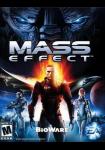
Mass Effect - Revisiting the Series @ D+PAD
D+PAD talks about and looks back on the entire Mass Effect Saga.
The first time I played through Mass Effect 2 I was nonplussed; it seemed to have less of the rough and experimental charm of the first game, which seemed to be a haphazard evolution of Knights of the Old Republic into an attempt to create the definitive, ne plus ultra, science-fiction RPG which would encompass everything the genre had to offer. It had aliens, and a planet-hopping plot, and exploration of uncharted worlds, and xenophilia if you liked, and upgradeable weapons with dozens of options. The result was uneven, and often clumsy, but it was quite unlike most games in its attempted scope and as a result I defended it quite vehemently as a good game. The second, by contrast, was more elegant and simplistic – all of the aspects of Mass Effect were present but in a form which worked without any inconsistencies or awkwardness – and as a result at first seemed too clinical and perfunctory.
Disregarding this sleight of hand and playing the games long after the arguments have died down, long after their value and nature have been discussed – their real merits show through. What remains, beneath the promises and the shortcomings, are a series of games that tell a story and allow the player to alter the fine details – the memorable ones. The actual story missions of both of the first two games are quite unremarkable. What I remember of my most recent playthrough are things like my character failing to resolve a row between Tali and Legion just before the final mission, and so I made the decision to keep the one I agreed with by my side and let the other take their chances (with tragic results). Or that my constant pangs of conscience and attempts to do the best for friends while being disdainful of others resulted in my character being neither forceful enough nor conciliatory enough to successfully press their viewpoint in big arguments and having to rely instead on threats and bluster to muddle through.
In conclusion I think replaying the first two Mass Effect games taught me two things about the series. The first is that neither is, on a fundamental level, a mechanically sound game. The first game is over-ambitious in its attempt to be comprehensive and ends up feeling like awkward busywork. The second is far too pared-back and focused on story-telling over providing mechanical choice and so feels superficial. This is where the third succeeded; it found the missing mid-point on a fundamental, behind-the-scenes level and was probably the best game. Yet here is where my second point comes in. Properly seeing where Mass Effect shines relies on understanding what it is – and that it is not what it was described as. The amount of agency that the player has the illusion of was ultimately unsustainable across three games and so the continued claims that it existed ultimately fell through. The result is a story with fixed start and end points and a procession of known events in the meantime – not an open-world RPG with divergent or emergent stories. And this, ultimately, is where the first two entries – mechanically unsound as they are – succeed far more than the third. The illusion of agency is far better presented, the superficial choices far more memorable. The third game overreached in trying to exceed this foundation and as a result the failures in suspension of disbelief – a constant shortcoming around which the early games skirted – became too great.
Information about
Mass EffectSP/MP: Single + MP
Setting: Sci-Fi
Genre: Shooter-RPG
Platform: PC, Xbox 360
Release: Released

